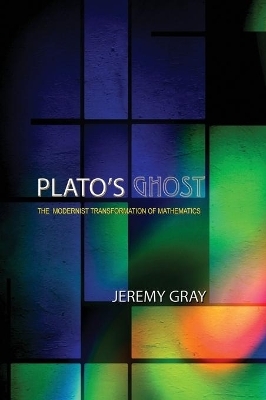
Plato's Ghost
Princeton University Press (Verlag)
978-0-691-13610-3 (ISBN)
Plato's Ghost is the first book to examine the development of mathematics from 1880 to 1920 as a modernist transformation similar to those in art, literature, and music. Jeremy Gray traces the growth of mathematical modernism from its roots in problem solving and theory to its interactions with physics, philosophy, theology, psychology, and ideas about real and artificial languages. He shows how mathematics was popularized, and explains how mathematical modernism not only gave expression to the work of mathematicians and the professional image they sought to create for themselves, but how modernism also introduced deeper and ultimately unanswerable questions. Plato's Ghost evokes Yeats's lament that any claim to worldly perfection inevitably is proven wrong by the philosopher's ghost; Gray demonstrates how modernist mathematicians believed they had advanced further than anyone before them, only to make more profound mistakes. He tells for the first time the story of these ambitious and brilliant mathematicians, including Richard Dedekind, Henri Lebesgue, Henri Poincare, and many others.
He describes the lively debates surrounding novel objects, definitions, and proofs in mathematics arising from the use of naive set theory and the revived axiomatic method--debates that spilled over into contemporary arguments in philosophy and the sciences and drove an upsurge of popular writing on mathematics. And he looks at mathematics after World War I, including the foundational crisis and mathematical Platonism. Plato's Ghost is essential reading for mathematicians and historians, and will appeal to anyone interested in the development of modern mathematics.
Jeremy Gray is professor of the history of mathematics and director of the Centre for the History of the Mathematical Sciences at the Open University. His books include "Worlds Out of Nothing" and "Janos Bolyai, Non-Euclidean Geometry", and the "Nature of Space".
Introduction 1 I.1 Opening Remarks 1 I.2 Some Mathematical Concepts 16 CHAPTER 1: Modernism and Mathematics 18 1.1 Modernism in Branches of Mathematics 18 1.2 Changes in Philosophy 24 1.3 The Modernization of Mathematics 32 CHAPTER 2: Before Modernism 39 2.1 Geometry 39 2.2 Analysis 58 2.3 Algebra 75 2.4 Philosophy 78 2.5 British Algebra and Logic 101 2.6 The Consensus in 1880 112 CHAPTER 3: Mathematical Modernism Arrives 113 3.1 Modern Geometry: Piecemeal Abstraction 113 3.2 Modern Analysis 129 3.3 Algebra 148 3.4 Modern Logic and Set Theory 157 3.5 The View from Paris and St. Louis 170 CHAPTER 4: Modernism Avowed 176 4.1 Geometry 176 4.2 Philosophy and Mathematics in Germany 196 4.3 Algebra 213 4.4 Modern Analysis 216 4.5 Modernist Objects 235 4.6 American Philosophers and Logicians 239 4.7 The Paradoxes of Set Theory 247 4.8 Anxiety 266 4.9 Coming to Terms with Kant 277 CHAPTER 5: Faces of Mathematics 305 5.1 Introduction 305 5.2 Mathematics and Physics 306 5.3 Measurement 328 5.4 Popularizing Mathematics around 1900 346 5. Writing the History of Mathematics 365 CHAPTER 6: Mathematics, Language, and Psychology 374 6.1 Languages Natural and Artificial 374 6.2 Mathematical Modernism and Psychology 388 CHAPTER 7: After the War 406 7.1 The Foundations of Mathematics 406 7.2 Mathematics and the Mechanization of Thought 430 7.3 The Rise of Mathematical Platonism 440 7.4 Did Modernism'"Win"? 452 7.5 The Work Is Done 458 Appendix: Four Theorems in Projective Geometry 463 Glossary 467 Bibliography 473 Index 503
| Erscheint lt. Verlag | 22.9.2008 |
|---|---|
| Zusatzinfo | 36 b/w illus. |
| Verlagsort | New Jersey |
| Sprache | englisch |
| Maße | 178 x 254 mm |
| Gewicht | 1247 g |
| Themenwelt | Mathematik / Informatik ► Mathematik ► Geschichte der Mathematik |
| ISBN-10 | 0-691-13610-6 / 0691136106 |
| ISBN-13 | 978-0-691-13610-3 / 9780691136103 |
| Zustand | Neuware |
| Haben Sie eine Frage zum Produkt? |
aus dem Bereich


